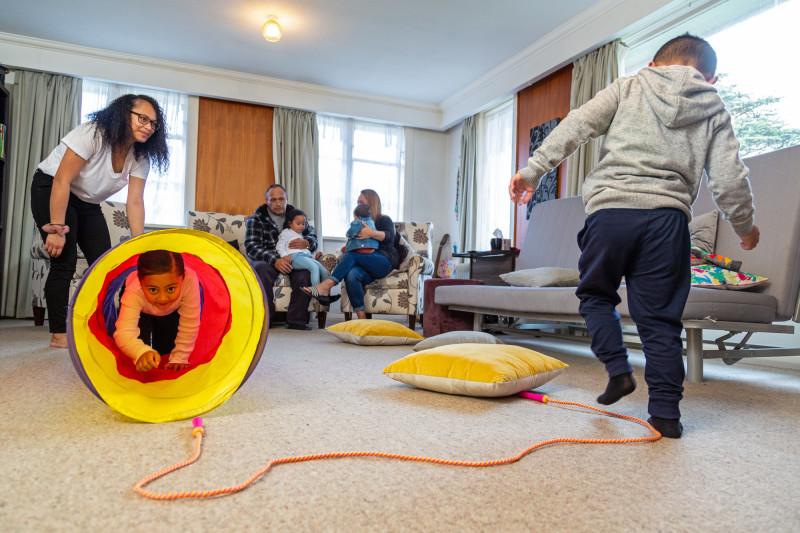
There comes a time when sibling rivalry becomes too much to handle. Parents and guardians, we feel your pain. Whether it’s screaming, kicking, or fighting, it always comes down to the adults to mitigate these situations.
However annoying it might be, though, sibling competition is a normal part of life. As Jeanine Vivona, a psychology professor at the College of New Jersey, rightly points out, “Competition with siblings is just a fact of life. And we, as people with siblings and people with children, can just try to manage it as best we can.”
In fact, throughout history lie stories of sibling rivalry. If you’ve read the Bible before, you would be familiar with stories of sibling tensions through the relationships of Cain and Abel and Jacob and Esau.
Since sibling rivalry has happened since the beginning of time, are there main reasons behind such strife? Well, they mostly come down to “harm” that one has done to another and jealousy over favouritism. In adults, it could also be due to parents’ legacy and financial resources.
Do you know that studies have shown that sibling aggression can happen as many as eight times an hour? But it’s honestly not a significant cause for concern. The conflict serves a developmental purpose by aiding a child in learning more about their personality and uniqueness through differentiation from their sibling.
And, as time passes and siblings get older, the conflict will most likely wear off. Though more often than not, folks dealing with the issue might find it tough to cope. That’s why we will take a look at some suggestions on how to reduce sibling squabbles.
#1: Examine the trigger

Image Credits: nymetroparents.com
Sally Beville Hunter, a clinical associate professor in child and family studies at the University of Tennessee, Knoxville, urges us to pay attention to what tends to happen before a dispute occurs.
Think about it, and you will probably agree that there’s always a fuel factor before a conflict begins. If you sense that your kids are about to fight, intervene and act on it immediately so you can stop the fight before it escalates.
For example, if your kids always exchange blows at the dinner table, pay attention to their tone, words, and actions to identify if any of them are in combative mode. The faster you intercede, the more you can stop aggression in its tracks.
#2: Guide them to resolve conflicts

Image Credits: blog.sacramento4kids.com
After the steam blows over, you can intervene by teaching them how to resolve conflicts so they can do so on their own in the future.
Try to sit them down for a discussion and give each child a chance to freely talk about their side of the story without blame and accusation. Then, have them come up with a few compromises and solutions by themselves.
Giving them a chance to work with each other will help build their relationship and resolution for years to come. Even if they were to face such issues with their school friends, they would instantly know how to deal with them.
#3: Sing your praises out loud

Image Credits: parentingforbrain.com
When your kids get along well, be sure to praise them and shower them with kind words when one sibling lets the other have their way first. For example, “I love that you’re letting your sister go first!”
However, when you’re trying to criticise a child, do so in private when the other sibling isn’t listening. Otherwise, they may use it as a weapon the next time they get into a fight and make the situation even worse.
#4: Encourage family get-togethers

Image Credits: Best Life
“Try to find common activities that allow everyone to be flexible and to feel connected,” Vivona said.
Even though your kids might have different personalities and interests, the more you can find shared activities that they can enjoy, their relationship will be better.
Maybe you could organise a physical activity or a family movie night? While arguments about what game to play or the right movie to watch can surface, don’t forget that this is a valuable chance for them to learn how to yield.
Don’t be too hard on them (and yourself)

Image Credits: Healthy Kids
With the year-long pandemic still ongoing and everyone’s on high levels of stress, it can be easy to lose your patience. It’s okay to get frustrated when your kids run into rivalry and small fights but don’t let it heighten into a shouting battle.
“I think some of these conflicts can be really solved by telling our kids to go outside and run around the house,” Hunter shared. And of course, not without them wearing their masks before they head outdoors.
Or if you’re worried that they may catch the virus and want to minimise risks, why not create an obstacle course for them using household items? If not, take them on a stroll around the neighbourhood. You could also be doing yourself a favour by taking in some fresh air outdoors at the same time.





